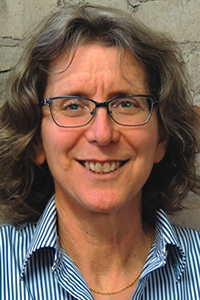
Nora Goldstein
BioCycle November 2016
While pondering a title for this month’s Editorial, the phrase Let’s Talk Turkey popped into my head. Perhaps it is the double entendre, as in I will talk to you about our family recipe for turkey and stuffing. But in this case, I’m going with the meaning of talking turkey that is in the Dictionary of American Slang and Colloquial Expressions by Richard A. Spears: “To talk serious business; to talk frankly.”
So let’s talk frankly about the serious business of organics recycling, which, not coincidentally, is the theme of BioCycle EAST COAST17, April 4-7, 2017 at the Turf Valley Resort near Baltimore, Maryland. First and foremost, there is definitely interest in the sector. Time and again, we hear that organics — primarily food waste and yard trimmings — are the single largest category, by weight, of waste that is still disposed in the U.S. Therefore communities with high diversion goals must target “organics out of landfill” by default.
To date, California is the only state aggressively tackling the reality that organics in the landfill, primarily food waste, are also a source of methane. Recent legislation signed into law by Gov. Jerry Brown is SB 1383, which requires the California Air Resources Board (CARB) to approve and implement a strategy to reduce emissions of methane — including a 75 percent reduction in the level of statewide disposal of organic waste from the 2014 level by 2020. That translates into a reduction of 13.3 million tons by 2025, according to an analysis by the California Compost Coalition.
About 20 states still have some sort of yard trimmings disposal ban on the books, and five states presently have bans or laws to restrict disposal of food waste (see “Fresh Look At Organics Bans And Recycling Laws” on p. 16). One positive consequence of disposal bans on food waste is an increase in food donation. And some wastewater treatment plants and farm digesters are benefitting from an increase of slurried food waste (thus generating more biogas), especially in Massachusetts, where its commercial food waste ban became effective in October 2014.
So back to talking turkey. Policy tools like bans are a plus for the business of organics recycling, but they are certainly not a panacea. So what will it really take to grow the organics recycling industry? Here are a few ideas:
Maintain a topnotch facility. Every existing composting, anaerobic digestion and mulch production facility must be operated well, meaning no public nuisances or impact on public health and the environment.
Focus on markets. We need to build demand for high quality recycled organics and steady flows of biogas. The need for these products is evident.
Provide solutions. On the front end, organics recyclers are managing wastes, just like any “disposal” facility. On the back end, however, organics recyclers are in the business of providing solutions — to manage storm water, stop soil erosion, offer 24/7 baseload power, build healthy urban soils, replace fossil transportation fuels, reduce use of chemical fertilizers, sequester carbon and much more.
The Call for Papers is open for BioCycle EAST COAST17. For Conference sessions on Wednesday and Thursday, April 5 and 6, 2017, we are seeking your presentations on how to grow the organics recycling industry. Submit your abstract by December 15 at www.BioCycleEastCoast.com. Let’s all talk turkey (or Tofurky).









